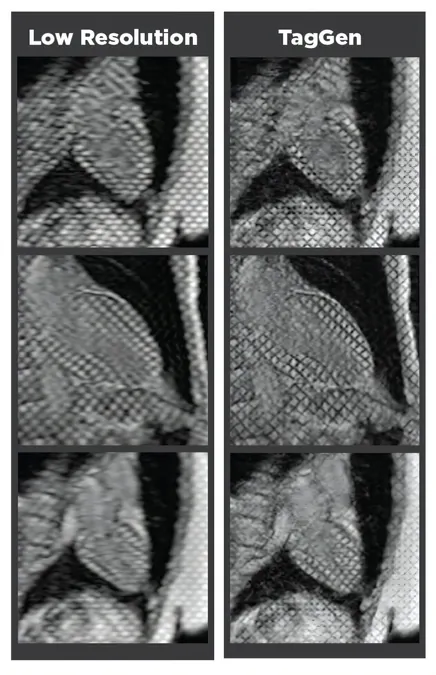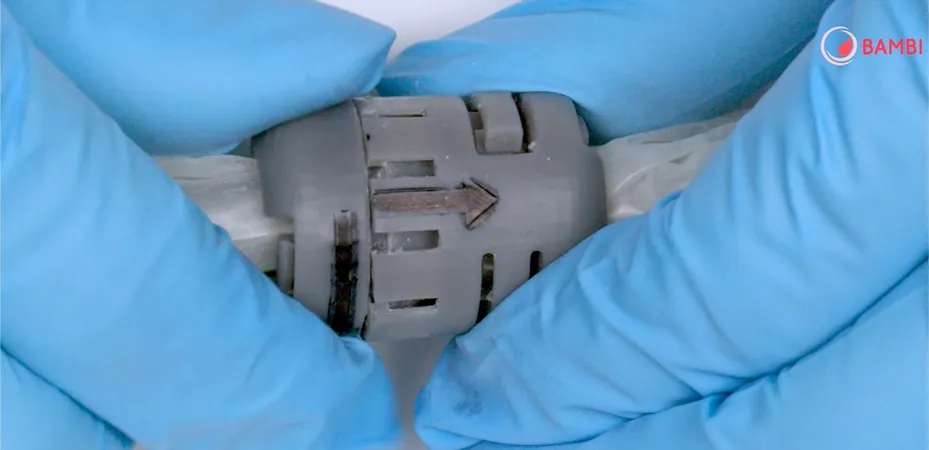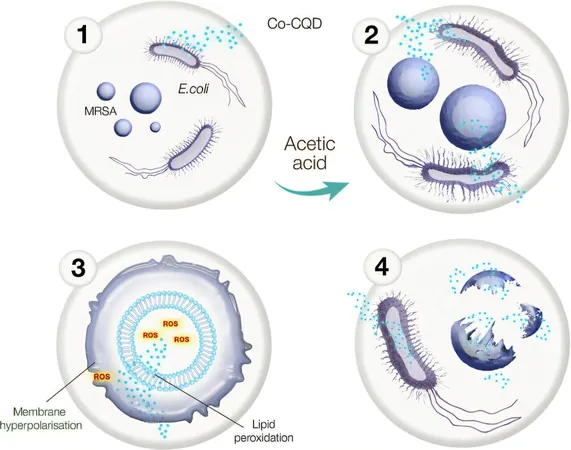
Revolutionary AI Transforms Low-Quality Heart MRI Scans into High-Definition Images
2025-06-25
Author: Daniel
In a groundbreaking development, researchers from the University of Missouri have unveiled an AI-powered model that dramatically enhances the quality of low-resolution MRI heart scans while slashing scan times by an astonishing 90%. Say goodbye to blurry images and long waiting times!
Typically, a cardiac MRI can take anywhere from half an hour to a whopping 90 minutes, providing crucial insights into heart function and potential issues. Unfortunately, motion often blurs these images, hindering precise analysis. Enter TagGen, the innovative AI model that promises to change the game.
As Changyu Sun, the lead researcher, explains, "A blurry image leaves clinicians with scant options for recovering crucial details. Sharp images are vital for diagnosing issues like abnormal heart movements or dysfunctions." This translates into a higher quality of care for patients.
Recent findings published in the prestigious journal Magnetic Resonance in Medicine highlight how TagGen not only enhances image resolution but also boosts the effectiveness of analyzing muscle movements in the heart. These sharp taglines act as critical markers for doctors to assess any irregularities.
The blend of faster scanning and superior image quality gives healthcare professionals an improved window into the heart's mechanics—how it beats, contracts, and pumps. Without this revolutionary technology, lengthy MRI sessions could result in increased costs and discomfort for patients, alongside inferior imaging results.
"During an MRI, patients often hold their breath to minimize movement, which can be quite challenging, especially if scans exceed 20 heartbeats, making it hard to maintain accuracy," Sun remarks. "With TagGen, the need for extended breath-holding is reduced to just three heartbeats, allowing clinicians to uncover details previously thought to be out of reach. This tech will lead to better diagnoses and healthier outcomes for patients!"
Looking ahead, Sun and his team are not resting on their laurels. Plans are underway to refine TagGen further and to expand its applications to various MRI types, CT scans, and potentially other organs like the brain.
Dr. Changyu Sun, an assistant professor at both the Mizzou School of Medicine and School of Engineering, is also a NextGen Precision Health Investigator, diligently focusing on advancing rapid MRI acquisition, precise reconstruction, and cutting-edge AI strategies.



 Brasil (PT)
Brasil (PT)
 Canada (EN)
Canada (EN)
 Chile (ES)
Chile (ES)
 Česko (CS)
Česko (CS)
 대한민국 (KO)
대한민국 (KO)
 España (ES)
España (ES)
 France (FR)
France (FR)
 Hong Kong (EN)
Hong Kong (EN)
 Italia (IT)
Italia (IT)
 日本 (JA)
日本 (JA)
 Magyarország (HU)
Magyarország (HU)
 Norge (NO)
Norge (NO)
 Polska (PL)
Polska (PL)
 Schweiz (DE)
Schweiz (DE)
 Singapore (EN)
Singapore (EN)
 Sverige (SV)
Sverige (SV)
 Suomi (FI)
Suomi (FI)
 Türkiye (TR)
Türkiye (TR)
 الإمارات العربية المتحدة (AR)
الإمارات العربية المتحدة (AR)